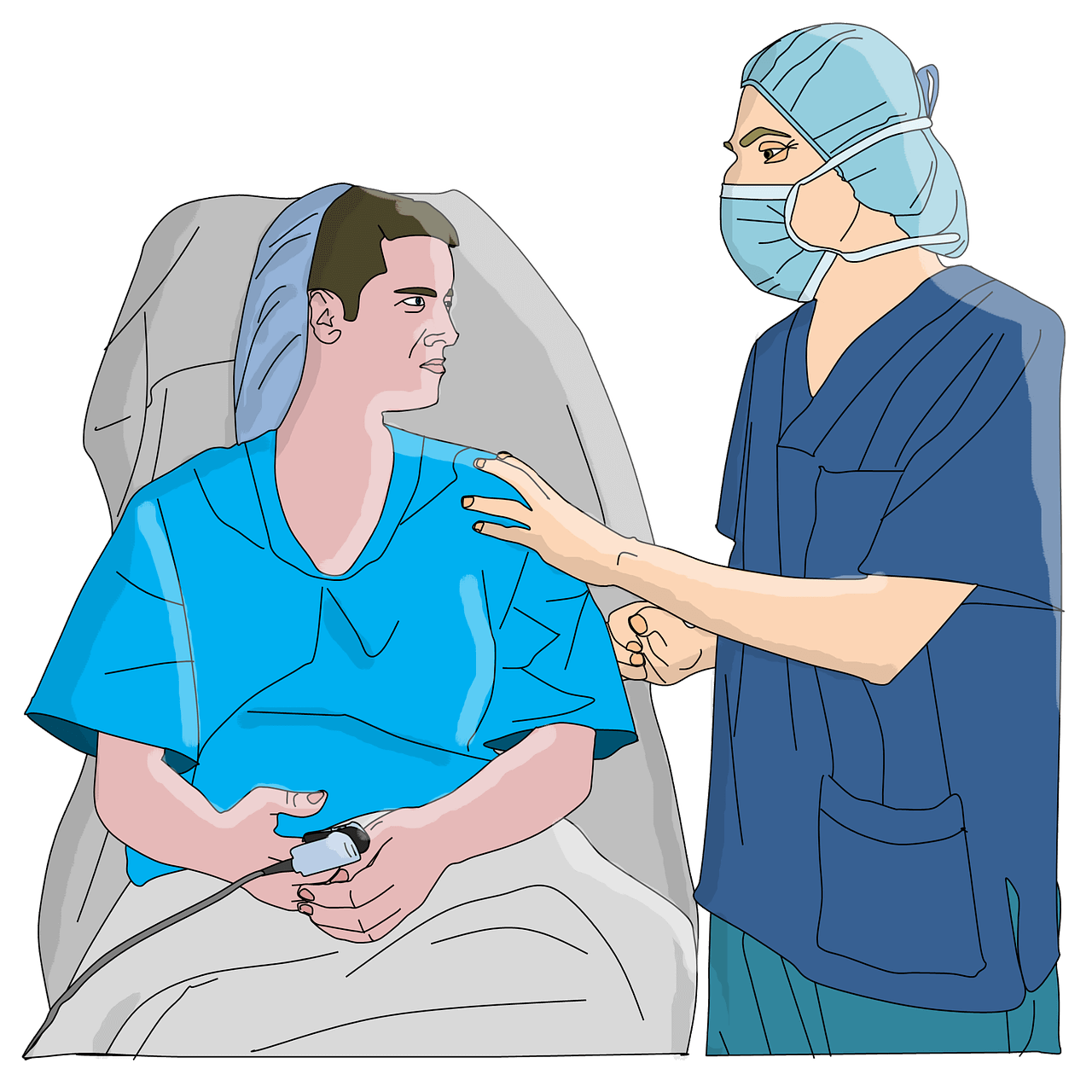I. Introduction
A. Brief Overview of the Topic
Surgery, whether minor or major, is a common part of many individuals’ healthcare journeys. It can range from outpatient procedures with quick recovery times, like endoscopies or minor skin surgeries, to more invasive and complex operations such as organ transplants or heart surgeries. Regardless of the type, surgery disrupts the normal function and integrity of the body, warranting a period of healing and recovery.
B. Importance and Relevance of Post-Surgery Recovery
The post-surgery recovery period is crucial in the overall success of the surgical procedure. It is during this time that the body begins the healing process, working to restore normal function and wellness. A smooth recovery can lead to optimal surgical outcomes, reduce the risk of complications, and enhance the patient’s quality of life. Conversely, inadequate recovery could lead to complications, prolonged healing time, or even necessitate additional interventions. Thus, understanding and appropriately managing post-surgery recovery is of utmost importance to both healthcare providers and patients.
C. Overview of Article Contents
In this article, we will delve into the complexities of the post-surgical period, starting with an understanding of the body’s healing process after surgery. We will discuss the importance of preparing for recovery even before the surgery takes place, and then move on to the immediate and long-term care post-surgery. We will also examine the role of nutrition and mental health in post-surgery recovery. Finally, we will address some of the most frequently asked questions related to surgical recovery.
II. Understanding the Post-Surgical Period
A. Definition and Explanation of the Post-Surgical Period
The post-surgical period, also known as the recovery phase, commences immediately after the completion of a surgical procedure. It extends until the patient has healed completely and has regained normal or near-normal functioning. The duration of this period varies greatly depending on the type of surgery, the individual’s overall health, and the presence of any complications. This phase encompasses various stages, including immediate postoperative care in the hospital, discharge, home-based recovery, and follow-up visits with the healthcare provider.
B. The Body’s Natural Healing Process Post-Surgery
Upon the completion of surgery, the body immediately begins the healing process. Inflammatory responses are initiated to defend the body from infection and to start the repair of surgical wounds. This involves a complex interplay of cells and biochemical reactions that result in clot formation, removal of dead tissue, growth of new tissue, and ultimately, scar formation. This process is typically divided into three overlapping phases: the inflammatory phase, the proliferative phase, and the remodeling phase. The inflammatory phase starts immediately after the injury and lasts for a few days. The proliferative phase begins a few days after surgery and can last for several weeks, during which the body creates new blood vessels and tissue. The remodeling phase starts a few weeks after surgery and can last up to two years, involving the strengthening of the new tissue and reduction of the scar.
C. Factors Affecting Recovery Time
Recovery time post-surgery is affected by several factors. The type and extent of the surgery play a crucial role; for instance, a minor outpatient procedure will have a shorter recovery time compared to a major invasive surgery. The patient’s overall health status is another significant factor. Conditions such as diabetes, obesity, or heart disease can slow down the healing process. Age is also a key consideration, as younger individuals generally recover faster than older ones. Lifestyle factors like nutrition, smoking, and alcohol use can influence recovery time as well. Finally, the quality of post-surgical care, including wound care, pain management, and rehabilitation, can significantly impact the recovery trajectory.
III. Preparing for Recovery Before Surgery
A. Importance of Pre-Surgery Preparation for Better Recovery
The period leading up to surgery, often referred to as the preoperative phase, is a critical window to prepare the body for the upcoming procedure and the recovery that follows. Research has consistently shown that pre-surgery preparation can significantly enhance postoperative outcomes, speed up recovery, reduce the risk of complications, and even minimize hospital stay.
B. Pre-Surgery Medical Consultations and Assessments
Before surgery, a series of medical consultations and assessments take place. The purpose is to understand the patient’s overall health, assess surgical risks, and plan the surgical and recovery strategies accordingly. This includes a detailed medical history, physical examination, and often a range of diagnostic tests such as blood tests, imaging, and specialized evaluations like cardiac or pulmonary assessments for high-risk patients. These consultations also provide an opportunity for the healthcare provider to educate the patient about the surgery, postoperative care, and the recovery process.
C. Lifestyle Modifications: Diet, Exercise, and Stress Management
Preoperative lifestyle modifications can play a pivotal role in enhancing recovery post-surgery. A balanced diet rich in protein, vitamins, and minerals can help build the body’s strength and immunity, preparing it for the healing process post-surgery. Regular exercise, as advised by the healthcare provider, can improve physical fitness, respiratory function, and circulation, which can aid recovery. Stress management is equally important, as stress can negatively impact the immune system and the body’s healing capacity. Techniques like meditation, deep breathing, and yoga, alongside psychological support, can help manage pre-surgery anxiety and stress.
Additionally, patients are advised to abstain from smoking and limit alcohol intake in the weeks leading up to surgery, as these habits can interfere with the body’s healing mechanism and increase the risk of complications.
IV. Immediate Post-Surgery Care
A. Hospital Care: Pain Management, Wound Care, and Mobility
Immediately following surgery, patients typically remain in the hospital for monitoring and initial recovery. This period involves several critical elements:
- Pain Management: Postoperative pain is a common occurrence and effective management is crucial not just for comfort, but also to facilitate faster recovery. Pain can be managed through various methods, including medications (analgesics, opioids), regional anesthesia techniques, and non-pharmacological methods like relaxation techniques and cold therapy.
- Wound Care: Surgical wound care is essential to prevent infection and promote healing. This includes regular cleaning, dressing changes, and monitoring for signs of complications such as increased pain, redness, swelling, or discharge.
- Mobility: Early mobilization post-surgery is encouraged as it can help prevent complications such as deep vein thrombosis (blood clots in the legs) and pulmonary embolism (a potentially life-threatening condition where a clot travels to the lungs). The level of mobility will depend on the type of surgery and the patient’s condition, but may include activities like turning in bed, sitting up, standing, or even walking with assistance.
B. Discharge Procedures and Considerations
Before discharge, a comprehensive plan is usually made for the continuation of recovery at home. This may involve instructions on medication management, wound care, activity levels, diet, and signs of complications to watch for. Depending on the surgery and the patient’s condition, services like home healthcare, physical therapy, or outpatient rehabilitation may be arranged. It’s essential that the patient and their caregivers understand these instructions and feel comfortable to carry them out. The date for a follow-up visit is also scheduled at this time to monitor the patient’s progress.
Discharge is an important transition point in the recovery process and should be handled carefully. A well-planned and understood discharge plan can significantly enhance the safety and effectiveness of home-based recovery.
V. Long-Term Recovery at Home
A. Home Care: Wound Care, Medication Management, and Rest
Upon discharge, the responsibility of care often shifts to the patient and their caregivers. This includes several critical components:
- Wound Care: Continuation of wound care at home is vital for successful healing. This involves cleaning the wound, changing dressings, and observing for signs of infection such as redness, swelling, increased pain, or pus.
- Medication Management: Properly managing prescribed medications, including pain relievers, antibiotics, or other necessary drugs is crucial. This includes understanding the timing, dosage, and potential side effects of each medication.
- Rest: Adequate rest is essential for the body to heal and recover energy after surgery. However, rest should be balanced with gradual increases in physical activity to avoid complications like blood clots or muscle weakness.
B. Physiotherapy and Rehabilitation
Depending on the nature of the surgery, physiotherapy or rehabilitation may be a critical part of recovery. This may involve exercises to regain strength, flexibility, and range of motion, or training to relearn basic physical activities. Professional physiotherapists can provide a customized plan and guide the patient through this process.
C. Monitoring Progress and Signs of Complications
Regular monitoring of the recovery progress is necessary to ensure healing is on track and to detect any potential complications early. This includes observing the surgical wound, monitoring for any new or worsening symptoms, and tracking improvements in strength and mobility. Any concerning signs should prompt immediate consultation with the healthcare provider.
Routine follow-up appointments with the surgeon or healthcare provider are also a part of this monitoring process. These visits allow the healthcare provider to assess the recovery progress, address any concerns, and adjust the care plan as needed.
VI. Nutrition for Post-Surgery Recovery
A. Role of Nutrition in Healing and Recovery
Nutrition plays a pivotal role in healing and recovery following surgery. Adequate and balanced nutrition provides the essential building blocks for tissue repair and regeneration, supports the immune system, and helps regain strength and energy. Protein is especially important as it is needed for the growth of new tissue and to repair any bodily damage. Vitamins and minerals, such as Vitamin C, Vitamin A, zinc, and iron, are also critical for wound healing and immune function.
B. Recommended Foods and Beverages
Following surgery, it’s important to consume a balanced diet that includes a variety of nutrients:
- Protein-rich foods such as lean meats, fish, eggs, dairy products, beans, and lentils to support tissue repair.
- Fruits and vegetables which provide essential vitamins and minerals, as well as fiber to prevent constipation, a common post-surgery concern due to decreased activity and certain medications.
- Whole grains for energy and additional fiber.
- Healthy fats from sources like avocados, nuts, seeds, and olive oil for energy and essential fatty acids.
- Hydrating fluids like water, herbal teas, and clear broths to maintain hydration and support overall bodily functions.
C. Foods and Beverages to Avoid
While nutrition is key, it’s also important to limit or avoid certain foods and beverages during recovery:
- Processed foods which are often high in unhealthy fats, sugars, and sodium, and low in essential nutrients.
- Sugary drinks and snacks as excessive sugar can interfere with the immune system and healing process.
- Alcohol which can impair the immune system, increase the risk of complications, and interfere with medications.
- Excessive caffeine which can cause dehydration and disrupt sleep.
Remember, each individual’s dietary needs and tolerances can vary, especially post-surgery. It’s important to follow any specific dietary recommendations or restrictions provided by the healthcare team.
VII. Mental Health During Post-Surgery Recovery
A. The Emotional Impact of Surgery and Recovery
Undergoing surgery can be a significant emotional stressor. It’s not uncommon for patients to experience a range of emotions, from anxiety and fear about the surgical outcome, to frustration or depression during a potentially slow or difficult recovery. Acknowledging these feelings as a normal part of the process is the first step towards managing them effectively.
B. Strategies for Maintaining Mental Health
Maintaining mental health is as important as physical health during the recovery period. Several strategies can be helpful:
- Relaxation Techniques: Activities like deep breathing, meditation, and gentle yoga can reduce stress and promote relaxation.
- Regular Light Exercise: As approved by the healthcare provider, light exercise can boost mood and promote a sense of well-being.
- Maintaining a Routine: Keeping a regular daily routine can provide a sense of normalcy and control.
- Professional Support: For some individuals, talking to a mental health professional can provide significant support.
C. The Role of Social Support
Social support plays a crucial role in maintaining mental health during recovery. This could include emotional support from friends and family, practical help with tasks, or sharing experiences with others who have undergone similar surgeries. Being open about feelings and concerns with these support networks can provide comfort and reassurance during the recovery period.
VIII. Conclusion
A. Recap of Key Points
Post-surgical recovery is a multifaceted process that begins even before the surgery takes place and continues long after the patient has been discharged from the hospital. It involves understanding the body’s natural healing process, taking proactive steps in preparation for surgery, managing immediate post-surgery care, and navigating the long-term recovery at home. Key aspects of home-based recovery include wound care, medication management, physiotherapy, and monitoring progress. Nutrition plays a crucial role in promoting healing and providing energy for recovery. Equally important is the mental health aspect, managing the emotional impact of surgery, and leveraging social support for better outcomes.
B. Emphasizing the Importance of Following Medical Advice
Every surgical recovery journey is unique, and thus the medical advice provided to each patient is tailored to their specific situation and needs. It is crucial to follow these recommendations closely, from pre-surgery preparations to post-surgery care instructions. This includes adhering to dietary recommendations, activity guidelines, wound care instructions, and medication schedules. Regular follow-up with the healthcare provider is vital to monitor progress and to address any concerns promptly. By taking an active role in the recovery process and closely following medical advice, patients can significantly enhance their recovery outcomes and overall wellness.
IX. Frequently Asked Questions
A. How Long Does It Take to Recover from Surgery?
The duration of recovery from surgery varies widely depending on several factors. These include the type and complexity of the surgery, the patient’s overall health status, the presence of any underlying conditions, and the individual’s age and lifestyle habits. Minor surgeries may require only a few days to a couple of weeks for recovery, while major surgeries may require several weeks to months. Your healthcare provider will provide a more personalized estimate based on your specific circumstances.
B. What Can Be Done to Speed Up Recovery After Surgery?
While the body’s healing process takes time and patience, certain actions can help to optimize and potentially speed up recovery:
- Pre-surgery Preparation: Staying healthy before surgery, through good nutrition, regular exercise, and stress management, can support faster recovery.
- Post-Surgery Care: Following all post-surgery care instructions, including wound care, medication management, and gradual reintroduction of physical activity as recommended by your healthcare provider.
- Nutrition: Consuming a balanced diet rich in protein, vitamins, and minerals to support the body’s healing process.
- Mental Health: Managing stress and maintaining a positive mindset can also contribute to better recovery outcomes.
- Regular Follow-ups: Regularly attending follow-up appointments with your healthcare provider to monitor your progress.
C. What Are the Signs of Complications During Post-Surgery Recovery?
It’s important to monitor for any signs of complications during recovery. These may include:
- Wound complications: Increased redness, swelling, pain, or pus at the surgical site.
- Systemic symptoms: High fever, chills, or severe pain not relieved by prescribed pain medications.
- Respiratory issues: Difficulty breathing or chest pain could indicate a serious complication like a pulmonary embolism.
- Neurological symptoms: Confusion, difficulty speaking, or weakness on one side of the body could indicate a neurological event like a stroke.
If you notice any of these signs or have any other concerns, it is crucial to seek medical attention immediately.










